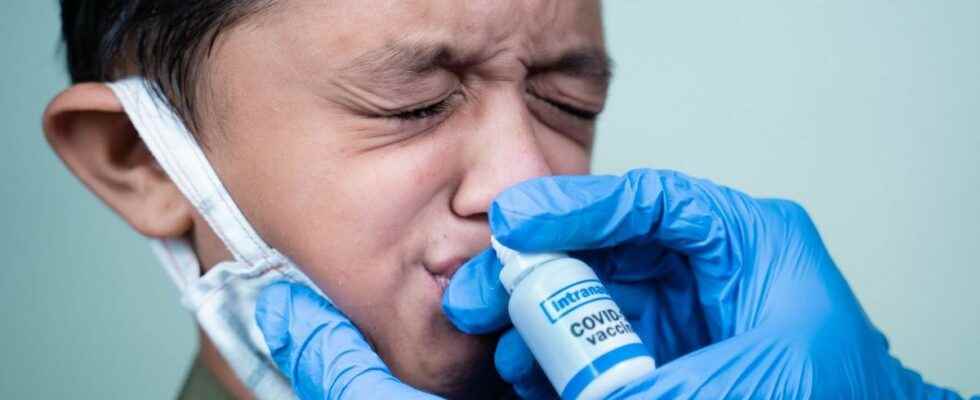Posted ,
Reading 2 mins.
While the Covid-19 epidemic seems to be slowing down, scientists are continuing their research to develop new vaccines against the disease. This is the case of a team of German researchers engaged on the path of a nasal vaccine. Objective, to block the infection as quickly as possible.
The entry route for the Sars-Cov-2 virus is well known: it is the mucous membranes of the airways. Since the start of the epidemic, several laboratories have been working to develop an instillable vaccine in the form of a nasal spray, which could block the infection where it occurs.
A preprint by German researchers
German researchers from the Free University of Berlin, in collaboration with the Max Delbrück Center for Molecular Medicine (MDC) and the Charité University Hospital, followed this lead.
They announce in a prepublication, not yet validated by their peers, the development of a vaccine that can be administered nasally. The results of this vaccine containing attenuated virus would be very conclusive.
Indeed, it would immunize better against Covid-19 than existing vaccines. Indeed, the nasal route would completely block the infection or, at the very least, attenuate it.
A vaccine developed with a genetically modified attenuated virus
This nasal vaccine called sCPD9 was developed with a genetically modified attenuated virus, a variant of SARS-CoV-2, then administered nasally to hamsters.
The researchers used molecular tools to introduce 200 targeted genetic mutations into this variant in order to make it less virulent and limit its replication. The aim is for it to be quickly eliminated after infecting the cells of the nasal mucosa.
Better efficacy than other vaccines
The researchers also compared their “nasal spray” to some of the vaccines that already exist: an mRNA vaccine (BNT162b2 from BioNTech-Pfizer) and an adenovirus-vectored vaccine. It appears that sCPD9 proves to be more effective not only in primary vaccination, but also in booster vaccination.
In their findings, the researchers report reduced rates of inflammation, bronchitis, and pulmonary edema. The booster vaccination even allowed “to reduce the levels of viruses capable of replicating below the detection threshold“, they write. Which means that a booster vaccination with sCPD9 – whether the primary vaccination was carried out with an mRNA vaccine or with the same vaccine – induces sterilizing immunity. Clearly, the person can no longer be contaminated and this, thanks to the presence of IgA antibodies, which are much more numerous with this vaccine.
Consult a GP online
Results to be confirmed in humans
Although these initial results are promising, they are only the beginnings of the definitive development of a vaccine. Indeed, in addition to the fact that the study has not yet been validated by peers, its results have been observed in hamsters.
It will take many more months of research in order to test a candidate vaccine in humans, within the framework of clinical trials, and to see this nasal vaccine perhaps benefit from a marketing authorization.
